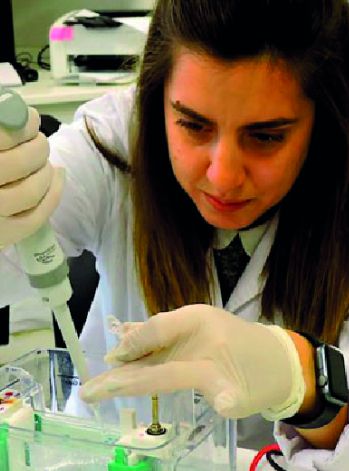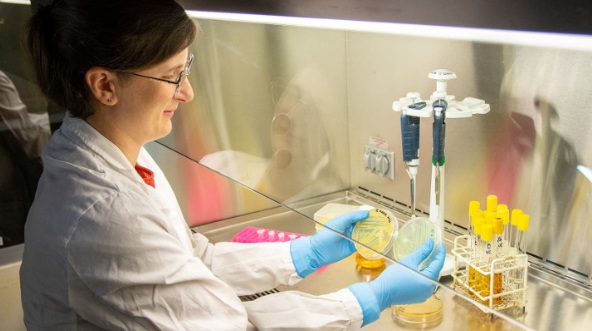Fiorella Mercedes Spinelli earned her degree in biological sciences from the University of Belgrano and a Ph.D. in biomedical sciences from Austral University, both located in Buenos Aires, Argentina.
Spinelli specializes in oncology research and in molecular and cellular biology techniques. She also completed a postdoctoral residency in Nantes, France.
The Argentine biologist conducts research focused on human health and the tumor microenvironment. She is part of the Research and Transfer Center of the Northwest of Buenos Aires Province. Spinelli has authored scientific articles and reports and has contributed to international journals.
Spinelli and the tumor microenvironment
Spinelli studies the tumor microenvironment—that is, everything that surrounds a tumor, such as cells, molecules, and blood vessels. Her work specifically focuses on hyaluronic acid and its relationship with both tumor cells and immune cells present within the tumor, which often contribute to its progression.
Her doctoral thesis advanced this line of research, using chemically modified hyaluronic acid in preclinical trials. Her studies demonstrated that the modified acid has both antitumor and antiangiogenic effects in breast cancer.
Her doctoral research
The investigation conducted for her Ph.D. involved several stages. It aimed to study the behavior of hyaluronic acid in both breast and colon cancer. The differing behavior of the acid was ultimately attributed to the TSG-6 protein, which is associated with hyaluronic acid and influences its behavior. This protein regulates the structure of hyaluronic acid around the cell and is present in breast tumors but not in colon tumors.
Spinelli’s research presents the potential for a new future therapy that considers the specific context of breast tumors and the use of hyaluronic acid behavior as a biomarker.
Breast cancer in Argentina
Breast cancer has a high incidence rate in Latin America and Argentina. Its prevention, diagnosis, treatment, outcomes, and related statistics are the subject of numerous studies and public health programs. Among the risk factors are overweight, sedentary lifestyle, excessive alcohol consumption, and a family history of breast cancer, among others.
For early detection and reduced mortality risk, health professionals and researchers recommend regular mammograms. This X-ray diagnostic imaging test can detect breast cancer even before it becomes palpable.
Breast cancer is part of Argentina’s public health agenda, with programs designed to raise awareness and make information accessible to the population. Due to the disease’s high incidence and mortality among women, Argentina established the National Breast Cancer Control Program (PNCM). Its goal is to reduce breast cancer-related mortality and ensure that women have access to continuous care. The program also aims to share information, facilitate access to care, and build an accurate data registry while ensuring proper diagnoses and treatments.
Argentina is also home to several organizations dedicated to breast cancer, including the Movimiento Ayuda Cáncer de Mama (MACMA), the Argentine Mastology Society, and the Avon Foundation. MACMA supports those diagnosed with the disease and promotes early detection awareness. The Argentine Mastology Society conducts a range of activities, from providing mammograms and publishing articles to offering treatments and community outreach. The Avon Foundation advocates for mammograms and medical checkups and supports additional causes as well.
Since breast cancer is the most common form of cancer among women, the goal of these foundations and others in Argentina is to emphasize prevention and offer support in cases of diagnosis. Among the researchers contributing to the understanding of breast cancer—not only the disease or tumor itself but also the surrounding environment—is Argentine biologist Spinelli. Her work continues to advance knowledge about breast cancer and the ways it interacts with neighboring cells and molecules.




